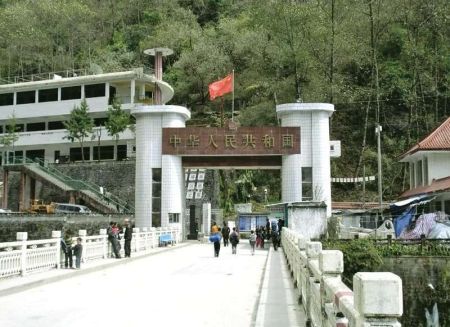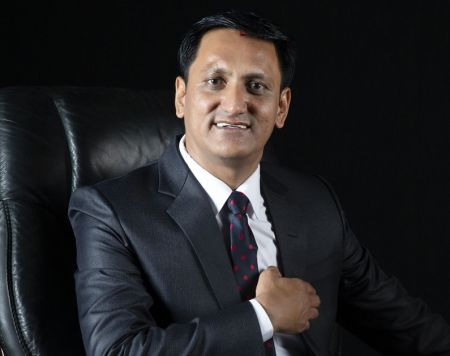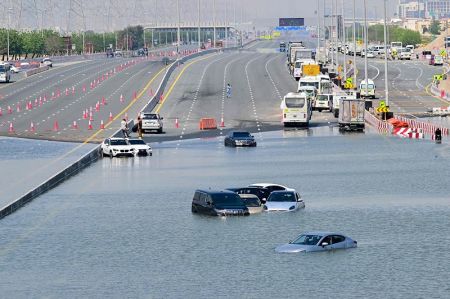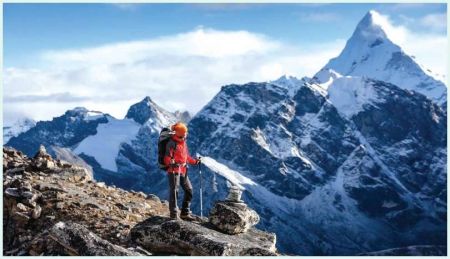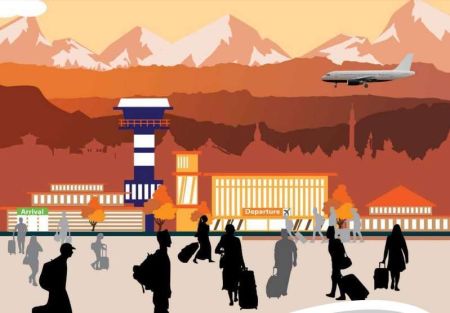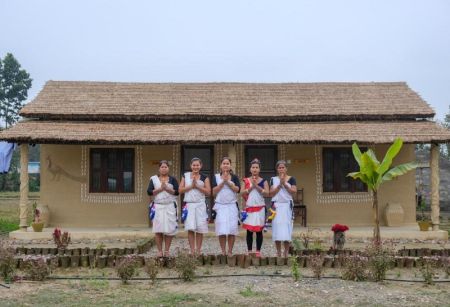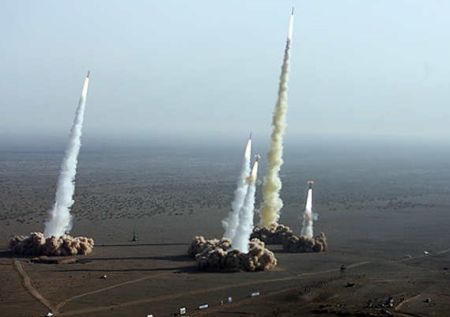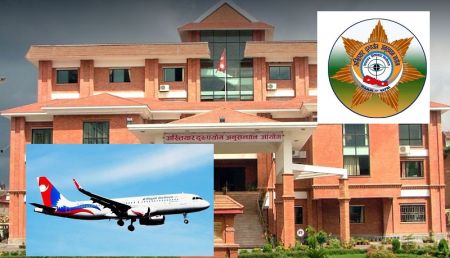(2).jpg)
--By NBA Team
Nepali economy counts on post-election confidence. With the elections for the Constituent Assembly (CA) and the legislature parliament just concluded, general public and business leaders want one thing for certain – political stability and economic prosperity.
Nepali business and consumers have been on a decade-long roller-coaster ride of unstable government with changes in leadership, epic legislative struggles and policy reversals culminating in what has amounted to a mess.
Now there are rays of hopes. The return of political stability is expected everywhere. Business community is upbeat by the successful second CA election. As the liberal forces are going to take the helm of the government, all are waiting for a decisive outcome that can provide real relief to people. And, it is the business community which has been waiting for a favourable situation for their business and investment.
Decoding the Election Result
People expressed their aspirations and exercised their power during this election to set the progressive course for issues that matter them the most. Interestingly, people filtered those parties who often take to the street to fulfill their demands but fail to deliver when they lead the government.
The victory of Nepali Congress in the urban areas clearly indicates that urban voters favour liberal economy. Similarly, the fact that majority of votes were secured by Nepali Congress reflects people’s will to be led by a political party which is in favour of social harmony and cohesion.
Needless to say that the business community was terrorized due to the hotpotch federal agenda put forth by UCPN (Maoist) and other ultra-leftist groups in a belligent manner. The recent poll results might have relieved the entire business community.
Business goes beyond the ethnicity. An entrepreneur from Madhesh has to do business in the hilly region and vice versa,” says former finance secretary Rameshore Khanal. “Political parties now should raise the issue of ‘economic nationalism’ instead of creating tensions among various castes and classes,” he remarks. In his words, policy stability and policy consistency is more important than caste and regional issues for development and prosperity.
Long Journey
Nepal became the 147th member of the World Trade Organization (WTO) in 2004. It is now over two decades since the government adopted liberalization and a development model based on private enterprise and foreign investment, with the market forces as a major driver of the economy.
Yet, the government’s initiatives for strengthening the private sector have been illusive over the last decade. With over decade-long experience, it is perhaps time to evaluate the advantages Nepal took from the WTO membership and way forward to get maximum advantages as a WTO member.
It is now time to seriously revisit the deep trade deficit Nepal has continued to run, says Bhawani Rana, vice president of FNCCI, one of the private sector umbrella organizations. The new government needs to make an overview of our foreign investment trends and identify policy bottlenecks, she emphasizes.
We Can, If We Want
In the early 1990s, the entire business environment was affected due to the people’s movement. Democracy was recently restored. The country was in a state of euphoria as all had much expectation from the new democratic government. But the country’s economic situation was not good as the overall economic indicators were in the red. Foreign reserve was depleted. In such a situation, Nepali Congress formed the government and was successful to bring economy back on track.
That was thanks to the fact that one of the proponents of free market economy, Dr Ram Sharan Mahat took charge of the finance ministry. Though opponents blamed him for favouring economic giants, he despite criticism firmly advocated free market economy and that has proved to be the right decision. The country achieved a record high growth of 8.60 percent in the GDP in 1994.
The situation after the 2013 election could hardly differ, hope the businessman and ordinary people. The situation is similar and so are the people’s expectations. The early 1990s have proved that the economy can revive if the political leadership is committed for that, says economist Dr Jagadish Chandra Pokharel. A revival in confidence is sorely needed if the country is to deal with the slowdown in economic growth, he adds. The new government should facilitate the business environment. Stable policies and investment friendly mechanism help to make a recovery in business confidence, according to him. But, as NC this time is most likely to form the government with CPN-UML as almost equal partner, doubts are high wether the post-1990 miracle can be repeated. When CPN-UML came to power replacing NC during post-1990 period, it had reversed some crucial policies adopted by NC.
Fear Side
Moreover, the country’s economic sector is not completely terror-free. The Baidya-led ultra-left communist party may create troubles for the sake of making its presence feel. Given Nepal’s immediate past, communal and caste issues may resonate strongly in the country’s psyche, across the wide-ranging social and economic strata. Understandably, left-extremism (including UCPN-Maoist) may try to create trouble given the humiliating loss experienced by them in the latest polls. Though their presence has significantly reduced in the national politics, left-extremism may try to fuel labour issues to create trouble in the industrial relations.
Economists, however, argue that the economy and its development, and distribution of benefits, are at least as important as the emotional issue about communities, castes and class politics.
“It’s clear that uncertainty over policy regime and regulations has been a hindrance to foster investment climate in the country,” says businessman Pashupati Murarka.
The only way out from the existing chaotic situation is to create more and more jobs in the country, Murarka reiterates. The country cannot get rid of political instability until the youths are left jobless, he claims.
Silver Lining
What are the elements that shape the country’s transition from volatile politics to stable democracy? All too often, policy analysts focus on the political process, while neglecting the vital role of economic reform in determining democratic success
or failure.
In the last decade, high unemployment and lack of entrepreneurial opportunities posed serious challenges to Nepal’s transition. On the other hand, the country faced growing unresolved grievances caused by issues such as misappropriation of private property, rampant corruption and widening inequality.
Yet, there is silver lining. Despite a decade-long political turmoil and armed conflict, the country’s economy was good enough to maintain its basic economic indicators in the positive direction. It is for sure that the country will go through a long and complex journey before the current political transition will settle to form a stable democracy.
The country’s micro as well as macroeconomic indicators are positive. “We have sufficient foreign currency reserves,” says joint secretary at the finance ministry Madhu Kumar Marasini. He underlines the need for utilizing the remittance inflow in the productive sector. “All we need is proper management of our own resources to open new avenues of development,” he opines.
Despite political instability, Nepal has witnessed a noticeable growth in all sectors during the last decade. And, it is sure that the country can improve its economic indicators if we get visionary leadership, claims former finance secretary Rameshore Khanal.
Nepal has made significant progress in various sectors including health, education, drinking water and telecommunication which clearly shows that the country’s economy is ready to take off and all it needs is a runway to move on.
The Issue of New Constitution
Drafting the new constitution is going to be an uphill task. There are many differences among political parties. But, the country cannot bear perennial transition. It is the need of the hour to fulfill the aspirations and dreams of the people in a positive manner.
Underdevelopment creates multiple problems. It fuels the frustration and pessimism among people which is not good for country’s economic health. And, politicians often blame the political transition for the dysfunction of development. In order to end the culture of blame game, we need the constitution which can end the existing political fiasco.
The business community wants this government to draft the constitution on time, opines Rajan Singh Bhandari. The economy cannot go ahead in an ad-hoc basis forever. This fact should be realized by all political parties and they need to draft the new constitution and promulgate it within the stipulated time, he adds.
Conclusion
Many leaders often express the hopes of transforming Nepal into another Switzerland. And, it is not a far cry if we try. Can economic prosperity be achieved in a country that reels under perennial political problems? Entrepreneur Hari Bhakta Sharma says, “Yes, we can achieve economic prosperity.” We can achieve every success if there is collective effort from the government and the private sector and positive vibes for development among people, he claims.
It is widely believed that the new government will be successful to take a decisive role to make our collective dream of becoming rich and prosperous a reality. And, we all need to be clear that the economic prosperity is not meant only for business community but for all of us. Let us make a collective dream and start the journey of becoming a prosperous nation. It is a fact: “United we stand and divided we fall.” Let’s make a collective effort to be the citizens of a prosperous country.
(3).jpg)





